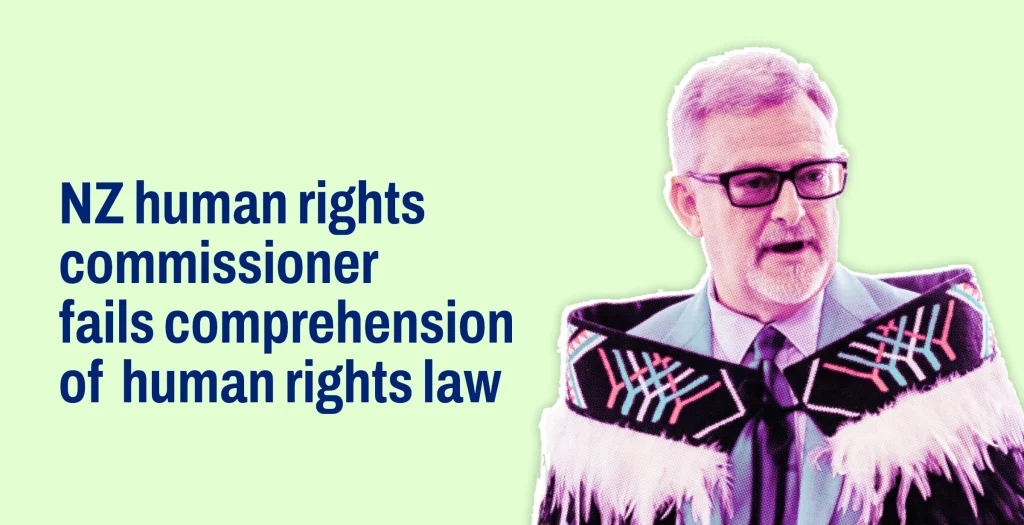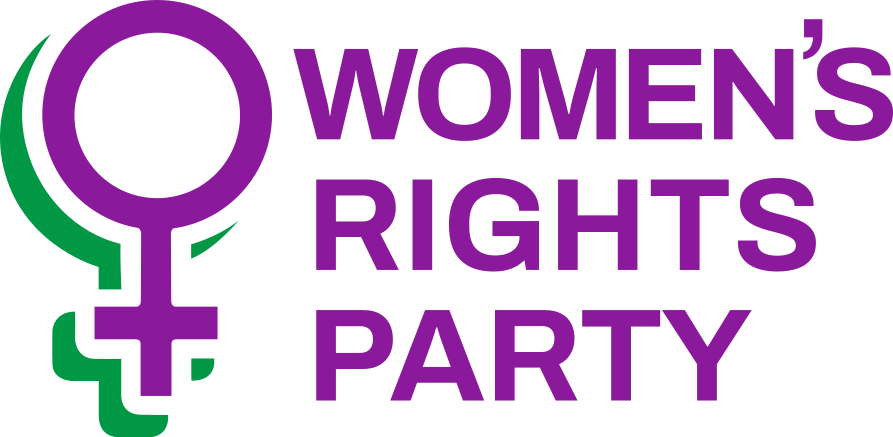Women’s Rights Party members have flooded the Human Rights Commission (HRC) with complaints after the Commission last week [July 24] condemned the government’s move to withdraw guidelines for transgender participation in community sport.

In its media statement, Disability Rights Commissioner and Rainbow Rights spokesperson, Prudence Walker, decried the government’s removal of the “trans inclusion” guidelines, saying that sport is recognised as a “human right, promoting the values of non-discrimination, respect, fairness, and equal opportunities for all”.
However, Jill Ovens, co-leader of the Women’s Rights Party, questions whether it is a human right for men, including those who identify as women, to participate in women’s sports categories.
“Is it a human right for able-bodied people to compete in sport activities for those with disabilities? Is it a human right for 20 somethings to compete in Masters categories for competitors aged over 50 or 60?”
In her complaint to the HRC, Ms Ovens said, “You can’t self-identify into a sports category and claim this is your human right.”
The HRC statement says the guidelines for inclusion of transpeople were written after a two-year consultation process. However, Save Women’s Sports Australasia was part of that consultation and spokesperson Rowena Edge has told media there was no consideration of the rights of women and girls to fairness and safety when they participate in sport.
Equal Employment Opportunities Commissioner and Women’s Rights spokesperson Gail Pacheco said all people have the right to be free from discrimination, including based on their sexual orientation, gender identity and expression, and sex characteristics.
“This is clearly set out in international human rights law, international jurisprudence, and United Nations treaties that New Zealand is party to,” Pacheco said.
There are 13 prohibited grounds of discrimination in s21 of the Human Rights Act (HRA). However, “gender identity and expression, and sex characteristics” are not amongst these.
Further, the HRA contains exceptions where discrimination is permissible in certain prescribed circumstances. In the case of sport, it is not discriminatory to “exclude persons of one sex from participation in any competitive sporting activity in which strength, stamina or physique of competitors is relevant”.
Section 49 of the HRA does not apply to coaches, sports administrators, or children under 12 years of age.
In her complaint to the HRC, Ms Ovens pointed to the apparent contradiction in the wording of s49 of the HRA which refers to “competitive sport”, while the trans inclusion guidelines refer to “community sport”.
Ms Ovens says most sport is by nature competitive, whether we are talking about children playing rugby or netball in inter-school or inter-club competitions, or provincial and national representatives.
In her complaint to the HRC she said: “You may argue that participation in community sport is just for fun, so fairness and safety are not at issue. In fact, where superior strength and physique is involved, untrained and unfit participants are more likely to be hurt, especially if they are women playing with men, or girls playing with boys, no matter how the men or boys identify.”
The HRC statement suggests that the withdrawal of the guidelines means that transpeople and those who identify as “non-binary” will be excluded from participating in sport.
“This is not the case. In withdrawing the guidelines, the government is leaving it up to sports bodies to determine their own rules,” Ms Ovens said.
She also noted that many sports bodies offer “mixed” or “open” categories that are accessible to anyone who wants to participate.
But under the HRA, sports bodies can exclude men who believe they are women from women’s sports, just as they can exclude participants who do not meet the criteria of age, weight, and disability categories.
“I can’t believe that you, as Human Rights Commissioners, do not understand your own Human Rights Act!” Ms Ovens said in her complaint. “But wait there’s more…At the bottom of your media release on your website, in bold no less, you bravely state that ‘gender’ and ‘gender identity and expression’ are prohibited grounds for discrimination. No, they are NOT!”
The Law Commission last August consulted organisations on a 200+ page document considering whether there was a need to include “gender identity and expression, and sex characteristics” as protected grounds against discrimination. The Women’s Rights Party was one of those organisations.
That Law Commission report was due to be presented to Minister of Justice Paul Goldsmith in June of this year, but has been delayed and will not now be available until late September, the Women’s Rights Party has been told.
Ms Ovens says those wishing to complain to the HRC should write directly to Dr Stephen Rainbow, the Chief Human Rights Commissioner, and to Prudence Walker and Gail Pacheco, rather than lodging complaints through the Commission’s website.
